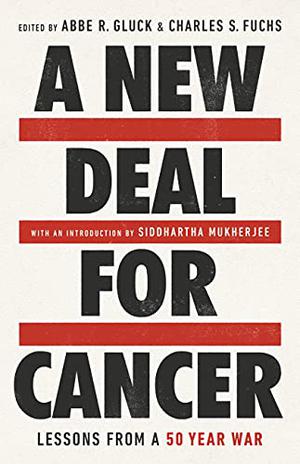
A NEW DEAL FOR CANCER | Kirkus Reviews
[ad_1]

One of Richard Nixon’s many failed promises was that cancer would be conquered as surely as illegal drugs would be. That didn’t come to pass—though, as Yale Law School health policy specialist Gluck and oncologist Fuchs point out, the death rates from cancer have fallen by 29% in the last 30 years. “Efforts in cancer prevention, most notably reduction in the use of tobacco products, account for much of the mortality reductions,” they write, “though recent advances in cancer therapeutics are now also contributing.” What will it take to bring the rate down even further? Contributors, including geneticists, public health and public policy specialists, physicians, cancer researchers, and pharmaceutical engineers, examine the many moving parts of the effort. One answer is more money, since cancer care is outpacing other medical costs. Care costs are better managed in physician-driven practices rather than corporate-driven ones. Even so, a kind of mentality is at play that, writes Siddhartha Mukherjee, is forming a “cancer institution” or totalizing cancer world in which the passage into illness is more emphasized than the passage into wellness. “I fear that we now possess one-way passports into the realm of illness,” he concludes. Other contributors examine developments in evidence-based screening, argue for the need for a “national cancer care databank,” and forecast improvements in imaging technology that will aid in earlier detection of tumor growth. Provocatively, one call is for mandatory HPV vaccination. The response to Covid-19 provides a model for cancer care and pharmaceutical development, although it will work only with increased federal funding, requirements for better reporting, and enhanced coordination among states.
[ad_2]
Source link

Comments (0)